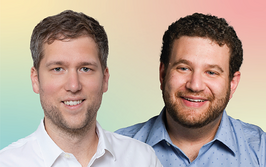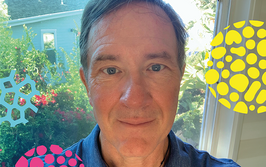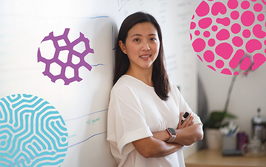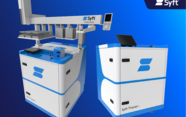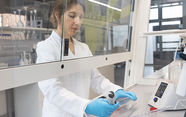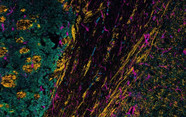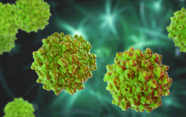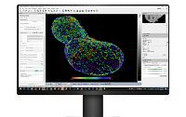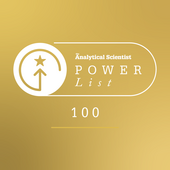Blurring the Boundaries
Sitting Down With… Caroline West, Associate Professor at the Institut de Chimie Organique et Analytique, Université d'Orléans, France
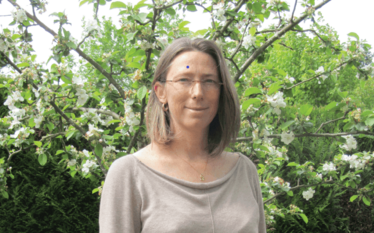
Why did you gravitate towards analytical science?
I initially wanted to work in forensics, but analytical chemistry soon drew my attention. Even if you specialize in just one technique, there are so many different applications areas that you could never grow tired of it.
When students are considering analytical chemistry, I’ll try to convince them by saying: “Whatever your personal interests or drive – whether it is sports, health or the environment – there is something for everyone!”
What first drew you to supercritical fluid chromatography (SFC)?
More chance than anything. I ended up completed my PhD in SFC, but knew little about it when starting my studies. It was exciting to explore such an “unknown.” Today, I tell my students that SFC is a technique worth learning purely because of its complexity – there are so many optimization parameters and unusual effects. If you take the time to learn SFC, it’s going to be beneficial to your understanding of any other separation method.
In terms of added value to analytical science, the relevance of SFC at the preparative scale has been recognized for about 20 years – especially for chiral separations in the pharmaceutical industry – because of its economic and ecological advantages. But where SFC comes into its own is its ability to complement other techniques. For example, in drug impurity profiling, you want to make sure that you visualize all components of the sample. If you use just one method, you may miss something important. Orthogonal methods like SFC shine for such applications.
Why is Orleans such a great environment for SFC?
Orleans is in the “French cosmetics valley.” There are plenty of big names around us, such as LVMH Research, who’s most famous brand is probably Dior, meaning that our institute is involved in cosmetics research, as well as in therapeutics and diagnostic innovations. For my part, I am mostly involved in pharmaceutical analysis, especially with Servier, a French pharmaceutical company. I’ve been fortunate to work with people who are very open to new ideas in this space, and are willing to share their experiences. And that allows us to tailor methods to optimize their success. Cosmetics are also less tightly regulated than the pharmaceutical industry, so it’s often easier to get new techniques accepted.
How has analytical science changed over the last few decades?
People have become increasingly aware that they need analytical scientists. How “good” is the food they eat? What’s the quality of their tap water? How pure is the air they’re breathing? All in all, it’s a great time to be an analytical scientist! Other scientists are now starting to realize our potential in their own projects, which encompasses a huge amount of effort in areas such as method development. Knowledge of these complexities is really changing the way our field is viewed.
Another key change is the increasing amount of data generated by the analytical sciences. Data analysis has become an essential part of the analytical process, making huge progress over the last 10 years. Our methods are more powerful – because we can do things faster and in multiple dimensions – and we are able to compare huge numbers of samples, each with massive amounts of data, with relative ease.
What’s in the future for SFC?
I’ve mostly worked with chemicals and small molecules so far, but we are moving slowly towards biological molecules. This shift brings many more unknowns that I’m excited to explore.
Old perceptions of SFC are no longer valid. We are beginning to blur the boundaries between different techniques – performing experiments with wide gradients that start in SFC conditions and end in high-performance LC. The future of SFC is constantly evolving. Strictly speaking, the name “supercritical fluid chromatography” may no longer apply, but I’m not concerned about the name. The important thing is that it’s changing the way we operate by opening the doors to new applications.
What are your interests outside the realm of SFC?
Something I’m working on currently – and something probably matters the most to me – is helping to improve the integration of disabled students in university. In 2005, President Chirac introduced a law encouraging the integration of disabled children into French schools. Since then, the number of students with disabilities entering university has been growing exponentially.
In my opinion, we aren’t as prepared as we could be. As well as physical disabilities, we also need to learn how to properly approach psychological disabilities and other neurodevelopmental disorders. We need to discover how best to teach these students and encourage universities to better adapt because it would be beneficial to all. It’s a big task, but it’s an area I’m passionate about and learning a lot from.

